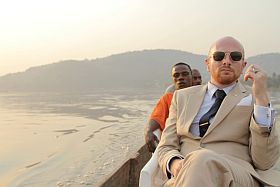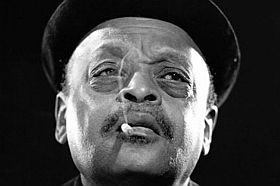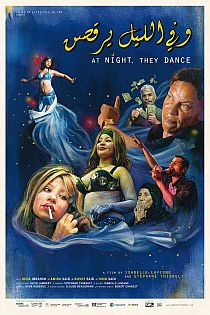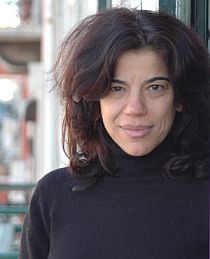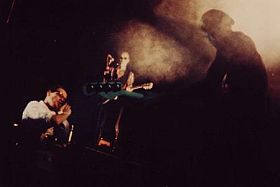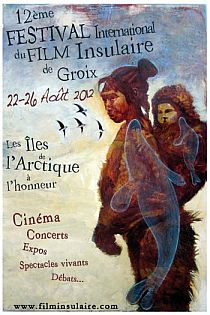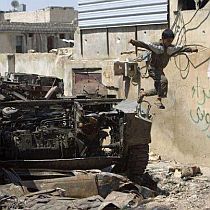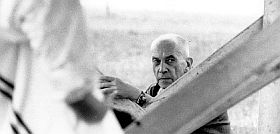”… mørkladne firser-vibes og grynet sort-hvide film, der hiver publikum tilbage til et af de få rigtigt stolte øjeblikke i 1980’ernes danske musiklandskab,” skrev Grand Teater i København ved filmens premiere tilbage i marts i år. Den er derefter kommet på DVD og kan nu også ses på Filmstriben. Den stolte begivenhed fandt sted i 1984, det var udgivelsen af Lars H.U.G.’s plade på grundlag af Søren Ulrik Thomsens bog City Slang , som fulgtes af en turné og to teaterkoncerter. Disse koncerter optog Skjødt Jensen. Og så gemte han videobåndene i sit arkiv, som man må tro er temmelig stort og ret interessant. Skjødt Jensen er dokumentarist i alle betydninger af ordet.
Og han vælger så til titlen ordet redux = latin for at bringe tilbage, og som det i dag ofte bruges, om værker, for eksempel filmværker, som genskabes i restaureret og udvidet skikkelse. Her altså pladeudgivelsen City Slang og teaterkoncerterne, genskabt flot restaureret i en film og udvidet med nye, store interviews med Lars H.U.G. og Søren Ulrik Thomsen og med to af musikerne, som var med dengang, Finn Verwohlt og Kim Jansson, og det hele er med sikker hånd omgivet af filmisk vignetstof, af den drømmende slags, vi forbinder med Skjødt-Jensens film, så ikke kun pladen og forestillingerne, men selve den svundne tid og tidsånden midt i 80’er årtiet skildres og tilbageholdende klogt blandt meget andet diskuteres af Søren Ulrik Thomsen, som så tilfredsstillende i lighed med de tre andre medvirkende har rigtig god plads, ligesom musikstykkerne er lagt ind i deres fulde længde. Forbilledligt.
Dokumentaristen Torben Skjødt Jensen registrerer og gemmer, som en dokumentarist selvfølgelig skal, men han gør hver gang noget mere: han revitaliserer arkiverne. I hans flittige produktion falder en stor del af værkerne i tre store blogge: 1) byessays, alle med tekst af en brømt forfatter: Flâneur 1-3 (Firenze / Calvino, i nummer to Clermont-Ferrand / Baudelaire og i den tredje Paris / Benjamin) samt i Wayfarer Randers / Seeberg), 1993-1998, 2) biografiske skildringer som It’s A Blue World / Lerfeldt, 1990, Carl Th. Dreyer, 1995, Den grimme dreng / Ole Ege, 1996, Simons film / Simon Spies, 1999, Den talende muse / Asta Nielsen, 2003, Afgrunden / Asta Nielsen og 3) kulturhistoriske undersøgelser, især tv-dokumentarer, blandt andre Som et strejf / dansk rockmusik gennem år, 1993 og sammen med Ghita Beckendorff Tugt og utugt 1-2, 2001.
City Slang Redux er således på plads i den tredje gruppe som en kulturhistorisk undersøgelse og en æstetisk refeksion over et ”øjeblik i 80’ernes musiklandskab”, som havde stor betydning i sin tid og som kaster betydning af sig frem til nu, bare forløbigt.
Torben Skjødt Jensen: City Slang Redux, DK 2011, 80 min. Manuskript og fotografi: Torben Skjødt Jensen, medvirkende: Lars H.U.G., Søren Ulrik Thomsen, Finn Verwohlt og Kim Jansson. Filmen kan ses på Filmstriben.dk Disse af de nævnte film kan også ses på Filmstriben: Tugt og utugt 1, Tugt og utugt 2, Den talende muse og Afgrunden. Og disse film blandt de nævnte kan bestilles på Bibliotek.dk (på VHS eller DVD): Som et strejf, It’s a blue world, Den grimme dreng, Simons film, Tugt og utugt 1+2, Afgrunden, Den talende muse, Carl Th. Dreyer, Flâneur 1-3.



